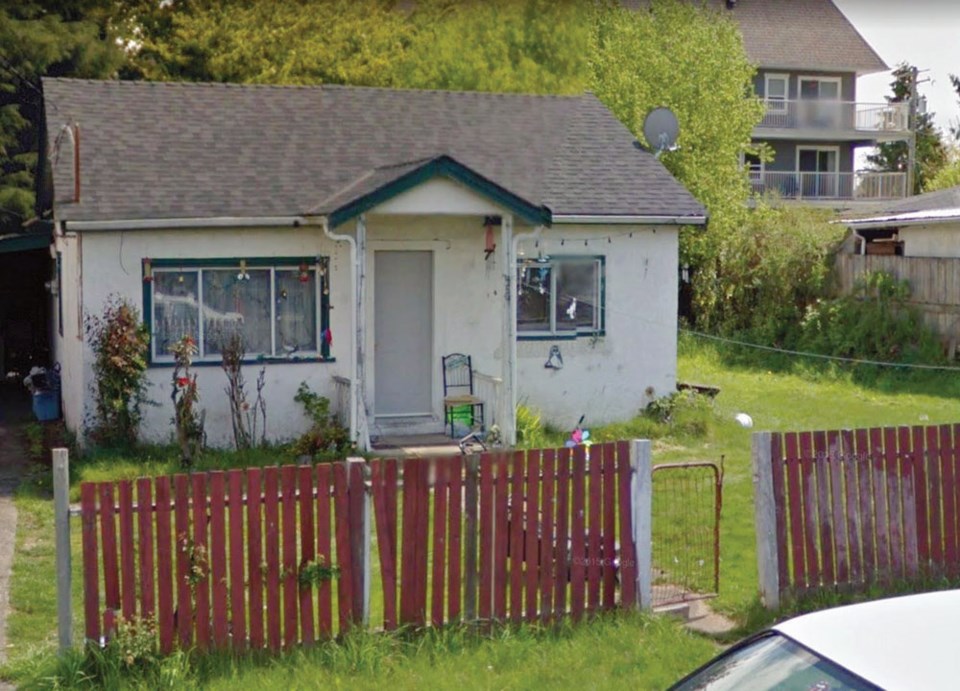For two years, Wayne Spence and his neighbours on a street in downtown Duncan battled the chaos of a known drug house.
Spence would call 911 when arguments over drug deals got out of hand, or notify bylaw officers when the debris and refuse piled up around the Garden Street home.
The home was the subject of two dozen bylaw complaints in one year, but Duncan bylaw enforcement supervisor Garry Kerr said the landlord failed to crack down on the nuisance tenants, despite hundreds of dollars in fines.
By the time North Cowichan/Duncan RCMP raided the home and arrested 15 people in November 2017, it was so littered with needles and contaminated with fentanyl that it was determined the house must be demolished.
Minister of Public Safety Mike Farnworth said legislation introduced Thursday will allow the province to crack down on drug houses or nuisance properties. The Community Safety Act will allow someone to make a confidential complaint to a provincial government unit, which will investigate, contact property owners and take steps that could see problem tenants evicted or a property shut down for up to 90 days.
“People who have criminals operating on the streets, where they live and work, deserve to know that they can speak up and remain safe,” Farnworth said. “In turn, authorities need the teeth to shut down dangerous properties, quickly and for good.”
Nuisance or criminal activity includes drug production and trafficking, possession of illegal firearms or explosives, after-hours sales of liquor and providing liquor or drugs to minors.
The act was originally passed in 2013 but was never brought into force.
Kerr said he’s seen how devastating it is for people who live near drug houses.
“You’re probably going to have traffic coming and going 24/7, you’re going to see an increase in theft and vandalism,” said Kerr, who was an RCMP officer before becoming a bylaw enforcement supervisor. “Eventually, if it’s left untouched, whether by bylaw or police, the problem simply gets worse. It can be extremely frustrating for neighbours who call time and time again.”
The City of Duncan doesn’t have specific bylaws to deal with drug houses, Kerr said, so enforcement typically focuses on unsightly properties and excess garbage.
“With the bylaws we have on the books, it’s hard to move on problem properties,” he said.
Neighbours might have the impression nothing is being done, but often bylaw officers and police are working on an enforcement strategy, he said. However, the process can be slow and Kerr is encouraged by provincial legislation that might crack down on drug houses sooner.
Victoria lawyer Michael Mulligan expressed concern about wording in the act that says nuisance behaviour can include consuming an “intoxicant” including alcohol or cannabis.
That could open the door for landlords to report “nuisance” behaviour in an attempt to secure a quick eviction of a tenant, Mulligan said. “I can see a landlord taking advantage of this scheme and making a report to have a tenant evicted to raise the rent.”
The Community Safety Act supersedes the Residential Tenancy Act.
The Garden Street home is now boarded up and Spence has been told hazardous materials workers must do a cleanup before the home can be torn down.
Spence, who runs a small business out of his home, said he wishes police and bylaw officers were able to act more quickly in shutting down the flop house. Even after the police raid, and after the home’s heat and electricity was cut off, squatters continued to occupy the building for a few months, he said. Spence would see propane fires and worry the house would go up in flames.
“I got the feeling that everyone’s hands were tied to get them out of there. It would have been nice if it had been dealt with quicker.”



